Parcours Paniagua wheels review – versatile, reliable and competitively priced
The Parcours Paniagua are entry level wheels that do what you need them to
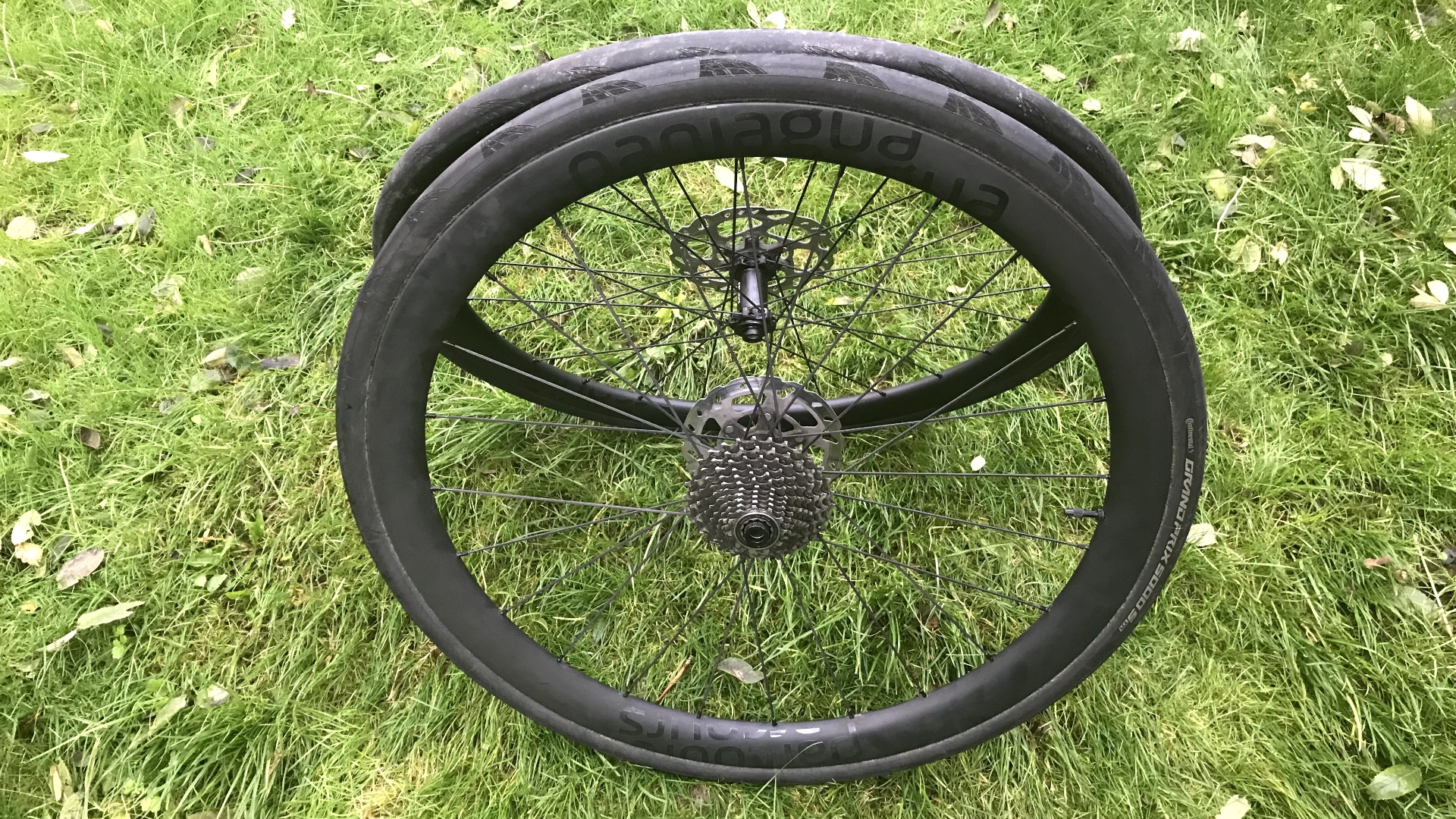
The Parcours Paniagua wheels are pitched at the entry level and are intended for use on a range of road surfaces and qualities. For me this is about right: the wheels are good without any stand out pros but certainly no glaring cons.
-
+
Good value for money
-
+
Ride well
-
+
Versatile
-
+
Good logo design
-
-
A bit run of the mill, little to set them apart
You can trust Cycling Weekly.
The Parcours Paniagua wheels are the British brand’s entry-level wheelset. Pitching the wheels here is reflected in the relatively low price and mid-depth (42mm) of the rims.
However, I’m glad to report that the performance wasn’t on the cheap side.
They rode well without being spectacular and would suit most road riders for a wide range of applications. They could be winter training wheels – especially when set up tubeless – for racers and time-triallists with ‘better’ (more expensive) summer wheels, or year-round wheels for anyone being more sensible about the money they spend on bike parts.
They come highly recommended as one of the best bike road bike wheels at this price point.
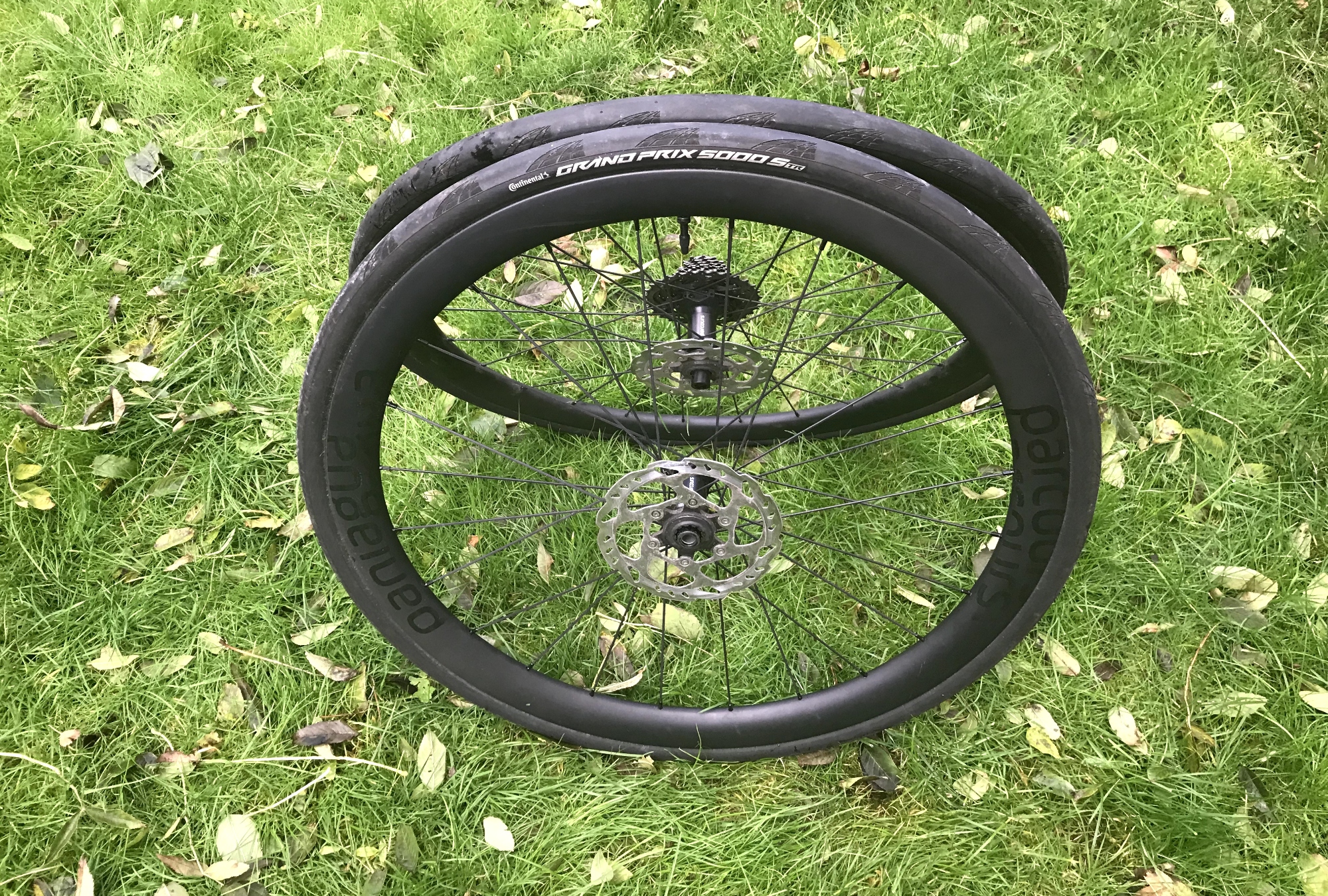
Parcours Paniagua: Tech spec
The rims of the Paniagua wheels are made from a T700 carbon layup with bladed Pillar 1423 spokes laced to Parcours' own hubs. The rims aren’t particularly deep at 42mm and so didn’t contribute to any gusty wind wobbles.
At this rim depth, I would suggest a balance has been struck where the wheels would suit a range of conditions across the year. As mentioned, they weren’t susceptible to any enforced change of line due to crosswinds – a problem I have experienced with deeper rims of 50mm and above – but with some aero benefits over box section wheels, they would add a bit of extra zip to most riders on a hilly or rolling time-trial course.
As they’re disc brake wheels, winter is no problem – especially as they’re tubeless compatible allowing them to be run at lower pressures – and I’d be happy using them on a summer sportive with plenty of climbing.
The latest race content, interviews, features, reviews and expert buying guides, direct to your inbox!
Parcours has opted for mismatched rim depths and shapes on some of its higher priced wheelsets, such as the Ronde. This approach was taken following aero testing, whereby marine anemometers were fitted at the axles of front and rear wheels to measure wind speed and direction – showing that the average yaw angle at the front wheel was consistently higher than at the rear, requiring a different profile for optimal performance. However, that’s not the case here, most likely, because this wheelset is more value-orientated rather than about chasing every watt.
The maximum rim width is 29mm, with an internal rim width of 21mm. The brand says that this ‘wide profile rim design’ is optimised for the modern 28-30mm tyre, and running 28mm Continental GP5000STR tubeless tyres worked very well with these wheels thanks to the added comfort, grip and puncture resistance of wider rubber.
The rims are hooked. This means that you’re not limited to the list of hookless approved tyres, or the lower pressures required to be within safe limits. All of this adds to the ‘for every rider’ approach of these lower cost wheels.
There are 24 Pillar 1423 spokes both front and rear, laced in a two-cross pattern on both wheels. These are bladed for aero gains and made of steel – strong but lower cost than carbon – and, according to the brand, contribute to the overall durability of the wheelset.
The Paniaguas are offered with three hub options: EZO bearings (steel) – as tested in the £759 pair, Parcours bearings (ceramic) – £979, and Classified Powershift ready – also £759. As you’d expect, they take a thru-axle and as standard come with a Shimano HG (10/11/12-speed) freehub. Sram is an option on request but these wheels are not Campagnolo-compatible.
The hubs with steel bearings suit the overall spec of the wheels and performed fine for the time I had the wheels – hardworking and hardwearing, rather than showy.
Those hubs are manufactured in Taiwan, while the wheels are manufactured in China where Parcours says it “works closely with the factory team and has a dedicated wheel building team solely for us,” the brand says, adding: “These wheel builders are specific to Parcours.”
Any custom wheelsets sold by the brand are built to spec in the UK.
At the point of purchase, customers can opt for a tubeless conversion kit as an add-on. As standard, Parcours wheels are shipped with a clincher rim strip.
Some brands include spare spokes with wheel purchases, but “spare spokes aren’t included because a broken spoke is so rare. Replacements (if needed) are readily available from a wheel builder or direct from Parcours,” the brand explains.
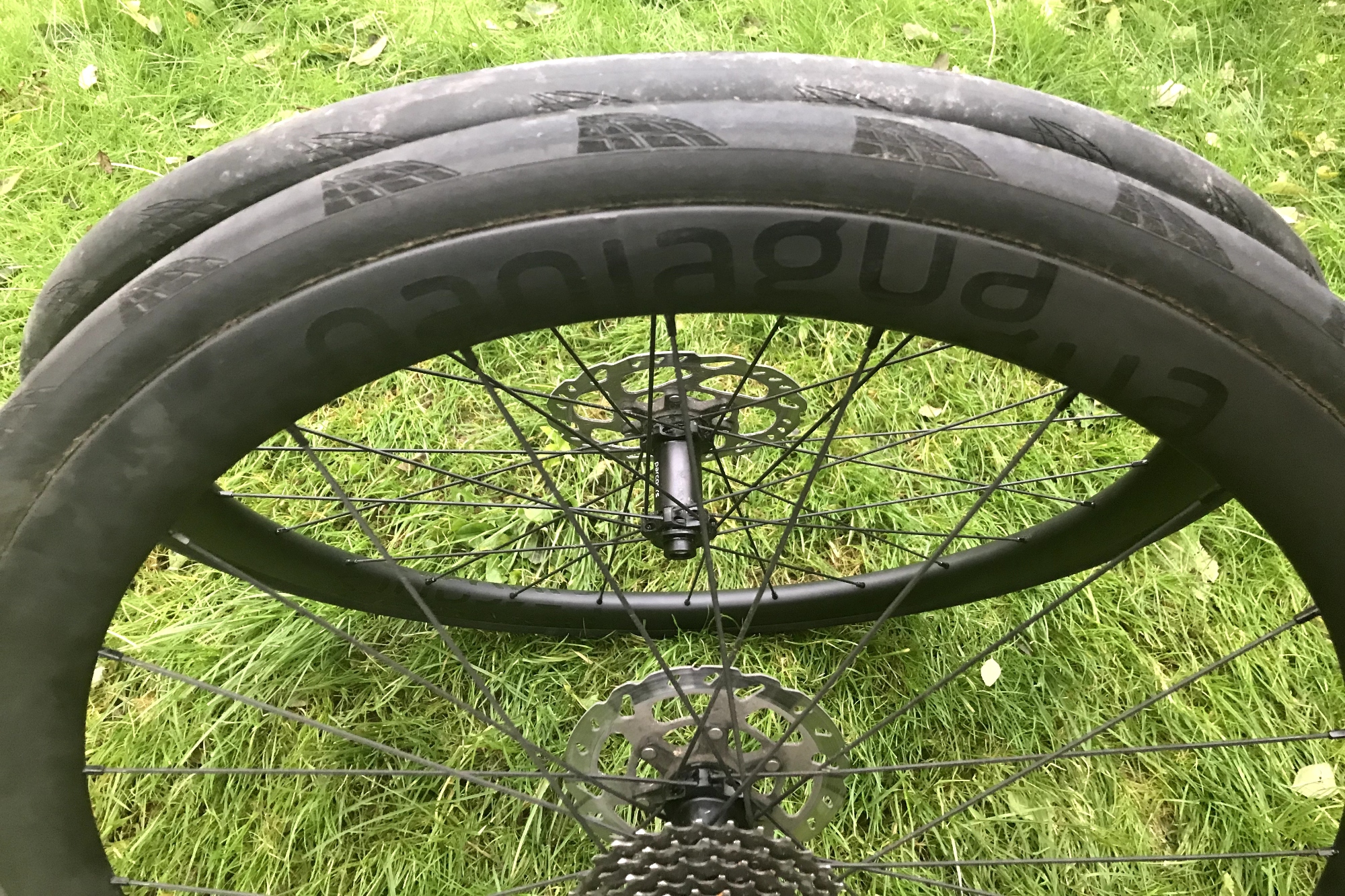
Parcours Paniagua: Arrival and set up
As they’re such a personal preference for riders, Parcours does not stock tyres or send out wheels with tyres. “We’d rather they have a wider choice and also if needed customers can use it as an opportunity to get to know their LBS [local bike shop] for a tubeless setup,” the brand told us.
However, as they were due with one of the brand’s sponsored athletes after the review period and as a review request, the Paniagua wheels arrived with already-seated Continental GP5000STR tubeless tyres.
Both needed pumping up, but that was easier than having to seat them anew.
I then added disc rotors and a cassette. Once in the bike I was good to go for the first test ride.
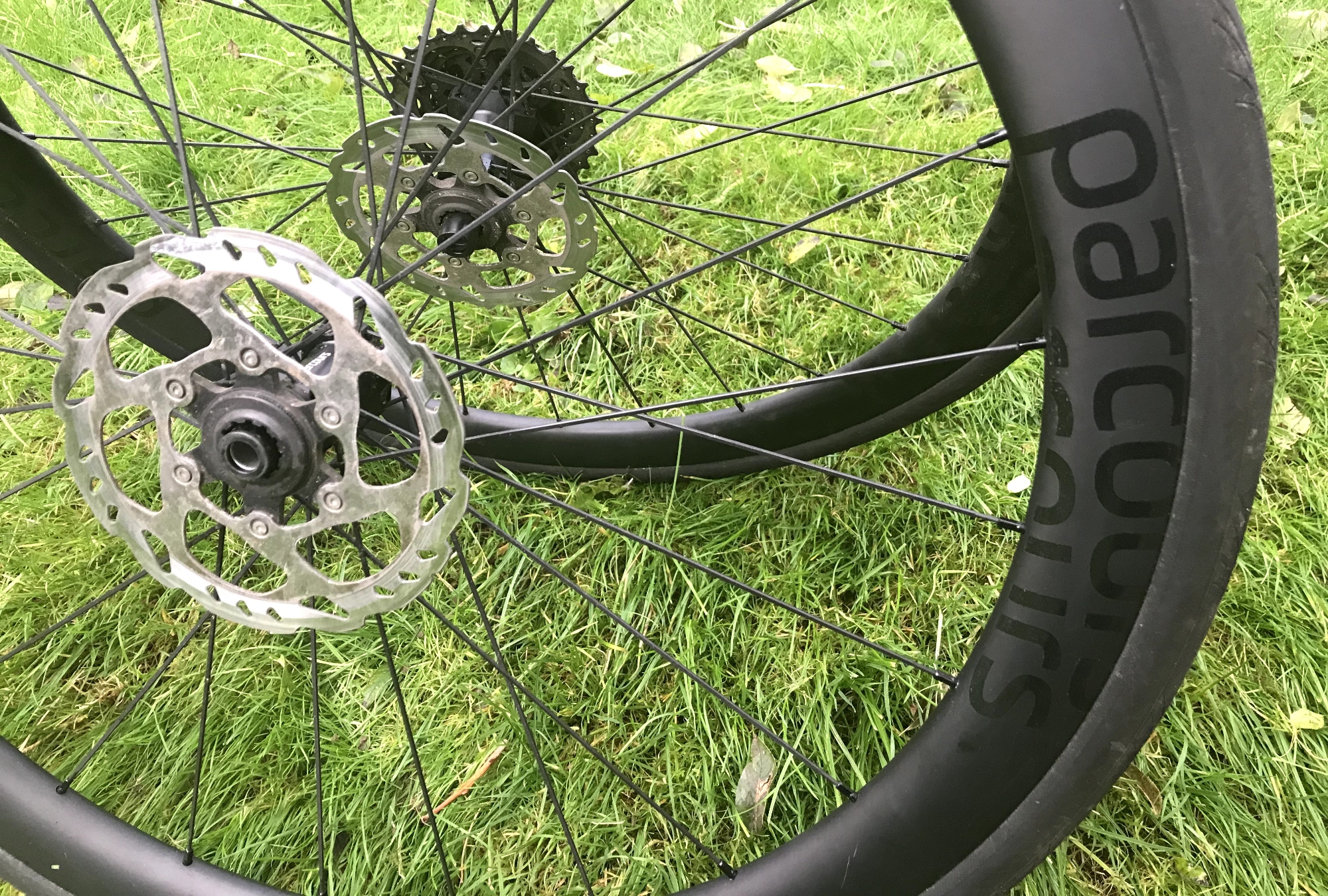
Parcours Paniagua: The ride
Parcours says of the Paniaguas: “Taking cues from Parcours’s ‘think wider’ range and using a modern wide internal rim profile the Paniagua is the ideal all-road wheel, comfortable for use on a wide range of road surfaces.”
I used the wheels through the dramatic seasonal change we experienced over the last few months, from late summer heatwave to stormy autumn. More recently this has meant riding over debris strewn and potholed roads – certainly a wide range of road surfaces.
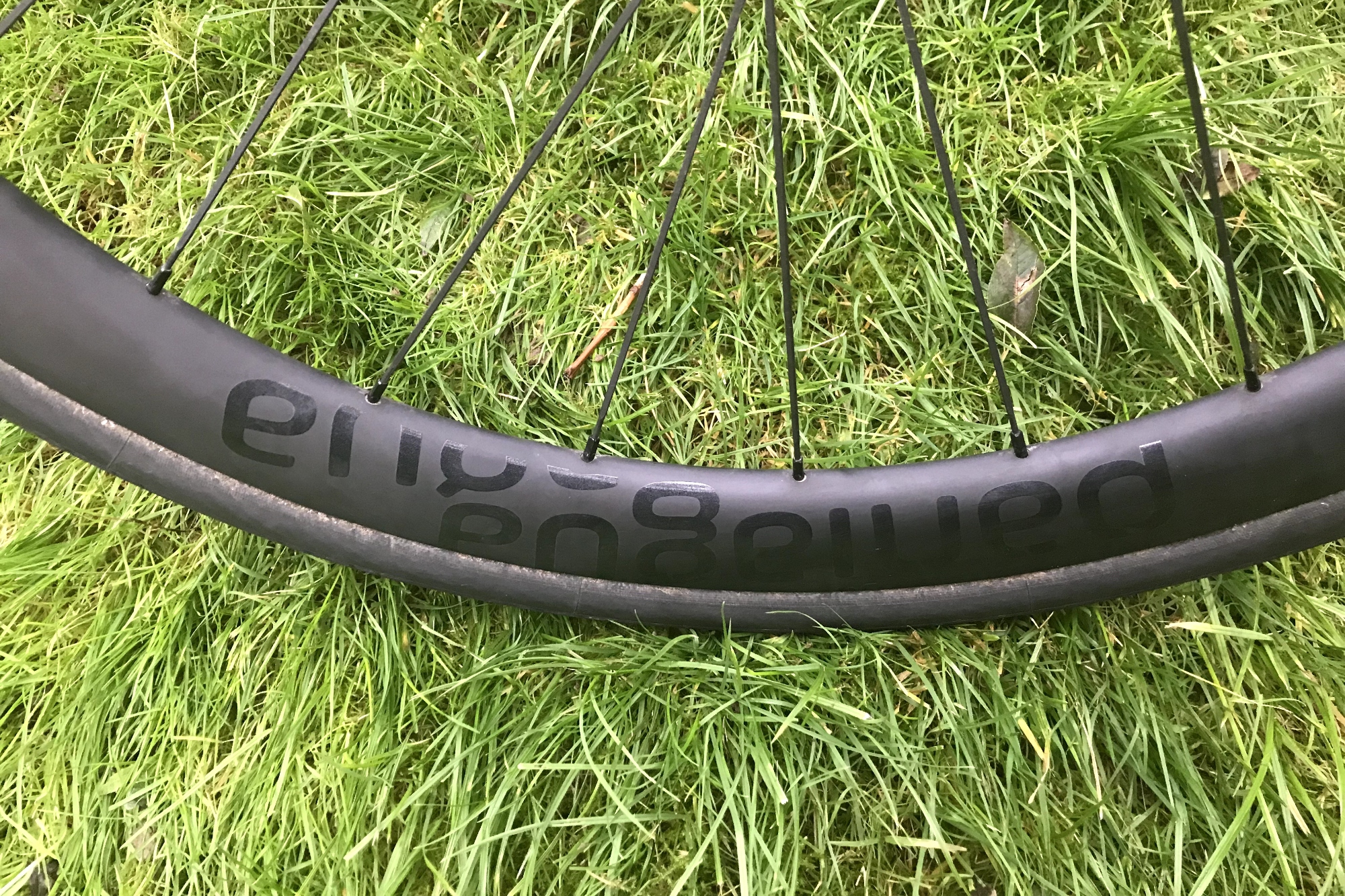
Overall, the wheels felt comfortable throughout – thanks in part to the tubeless Continental tyres that they arrived with.
But the comfort didn’t come at the cost of performance, as the wheels responded well to out of the saddle accelerations and seated climbs.
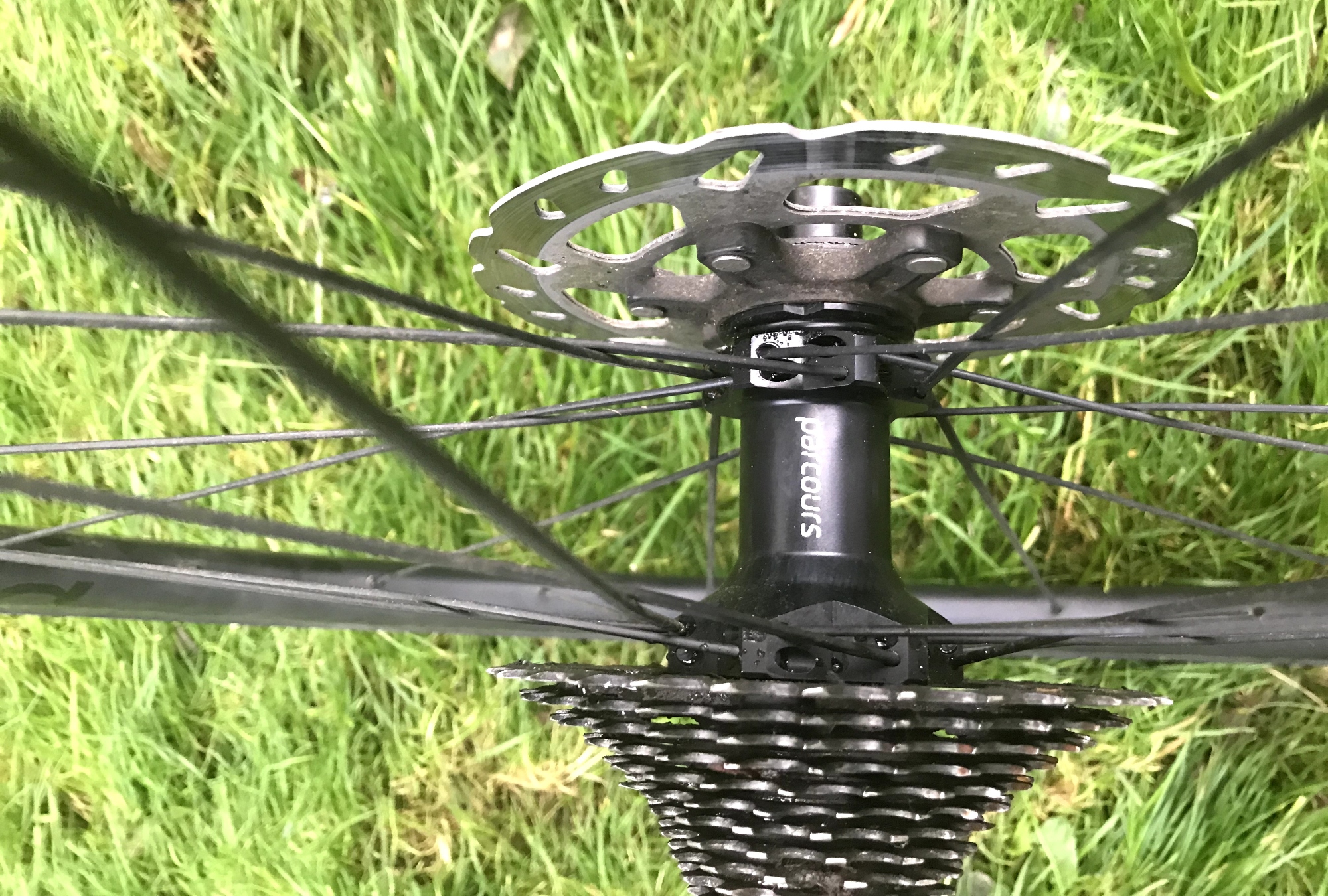
Parcours Paniagua: Freehub soundtrack
Something that annoys me, and I mentioned it in my review of the Prime Doyenne wheels earlier this year, is an inconsistently noisy freehub. Noisy in and of itself isn’t the problem: irritation starts when the noise isn’t constant during prolonged freewheeling.
This can manifest as a buzzing that is reminiscent of an angry wasp buzzing towards and away from your ears. Annoying. So I was very pleased to find that the Paniagua’s freehub omits a steady buzz when not engaged by the chain. The noise is also quiet enough to be lost in the sound of the gusty winds that seem to have accompanied every ride for the last two months.
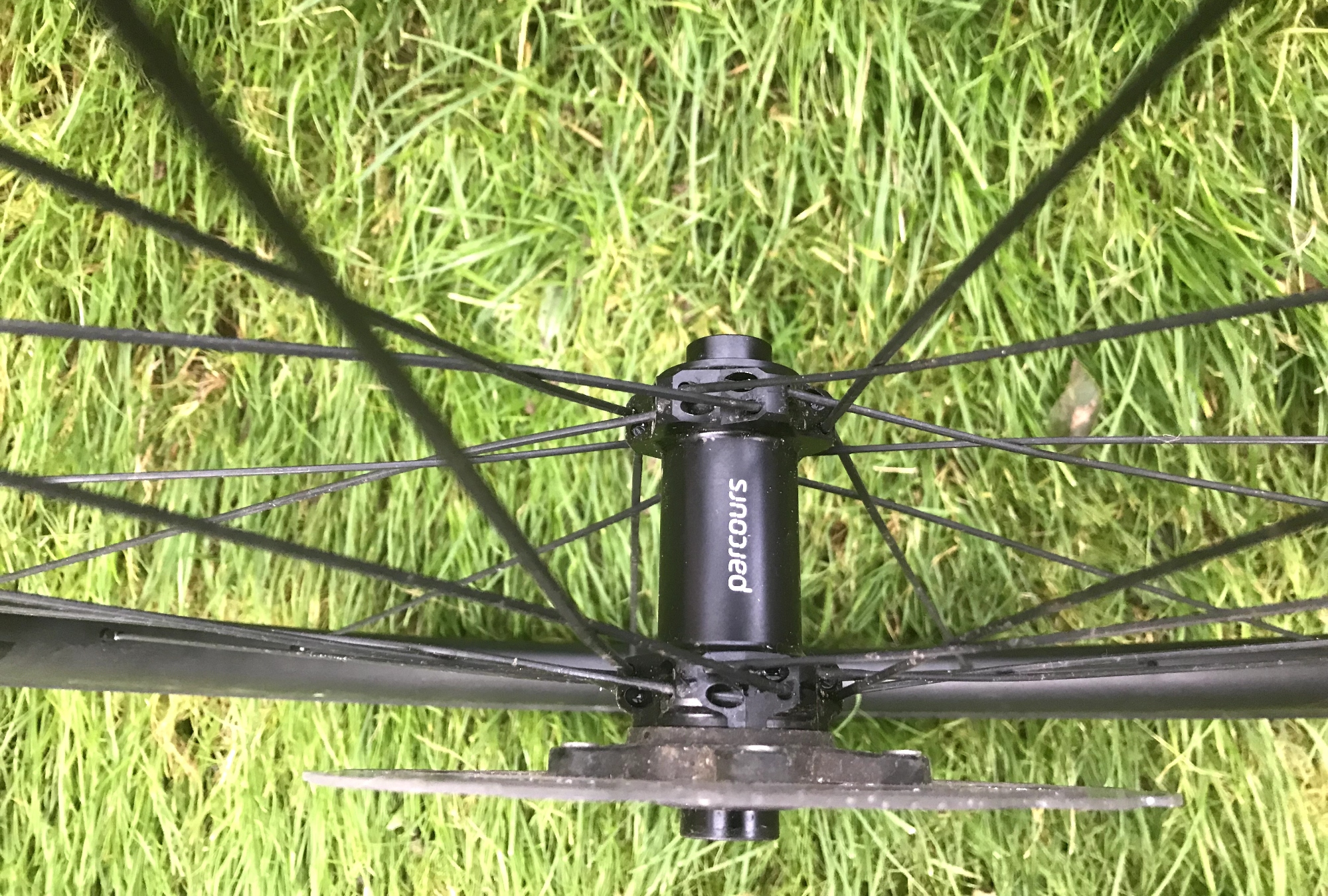
Parcours Paniagua: Value and conclusion
At $900 / £759 for a pair, these wheels are slightly more expensive than the $639.99 / £599.99 list price of the Prime Doyenne 56s I reviewed earlier in the year. However, that price difference does also come with a perception – by feel when held by hand and by the way they ride – that the Parcours Paniagua wheels also carry a bit more quality, going some way to justify that price difference.
However, this is a narrow comparison. When looking at some of the ‘big name’ brands, you’d be lucky to be allowed to look at the wheels through a shop window for $900 / £759. Yes, those wheels probably come with wind tunnel proven aero advantages and lower weights, but aero comparisons are usually dependent on a minimum speed of 45km/h – are you riding everywhere that fast? I’m not – and weight differences could be cancelled out by squirting a bit of water out of a bidon.
All this is to say, I think that if you’ve got the money then these wheels are worth their price tag. They aren’t showy or particularly spectacular, but they ride well, the brand talks a lot about durability so check it offers a warranty that reflects that, stick them in your bike and get going – you’re unlikely to regret this purchase.
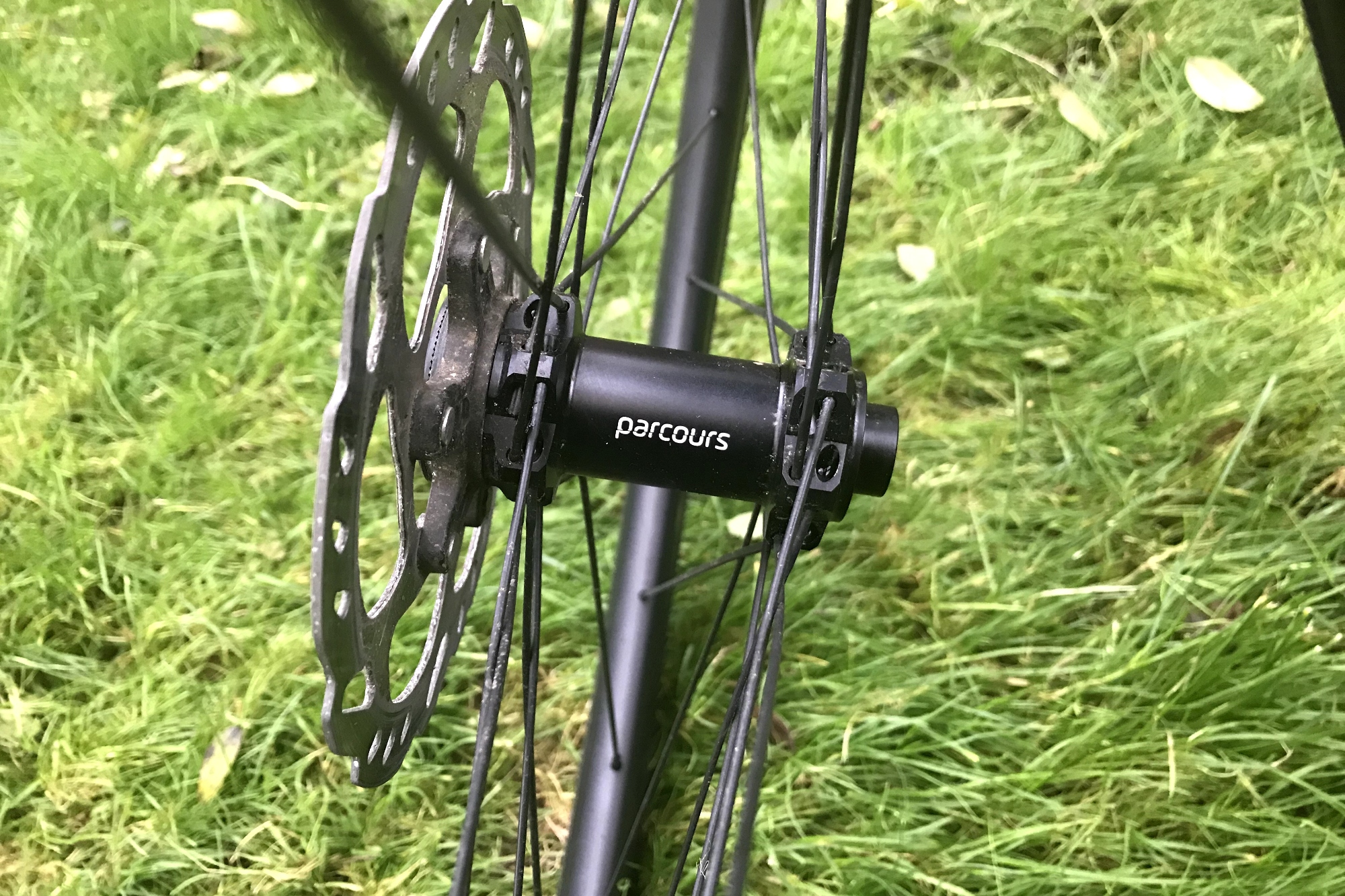
| Price | $999 / £759 |
| Weight | 2.27kg for the pair, with disc rotors, cassette and supplied Continental GP5000STR tubeless tyres |
Jack Elton-Walters hails from the Isle of Wight, and would be quick to tell anyone that it's his favourite place to ride. He has covered a varied range of topics for Cycling Weekly, producing articles focusing on tech, professional racing and cycling culture. He moved on to work for Cyclist Magazine in 2017 where he stayed for four years until going freelance. He now returns to Cycling Weekly from time-to-time to cover racing, review cycling gear and write longer features for print and online.